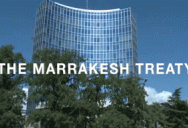Geneva, 18 January 2018
- The new AMR Industry Alliance of more than 100 biotech, diagnostics, generics and research-based biopharmaceutical companies and trade associations launches its first progress report today. The report measures action taken in four areas: research and science, access, appropriate use, and the environment.
- In 2016, the report shows that 22 Alliance companies invested at least USD 2 billion in R&D dedicated to AMR-related products. The funds cover costs for early-stage R&D, exploring new product classes, ten antibiotics in late-stage clinical development, 13 clinical bacterial vaccine candidates, 18 AMR-relevant diagnostic products, and other preventive therapies.
- More than two out of three Alliance companies surveyed with marketed AMR products, have strategies, policies or plans in place to improve access to their AMR-relevant products.
- The Alliance is appealing to policy makers to draw from the evidence provided in this report, and invites stakeholders to work more systematically with the life sciences industry, to find sustainable solutions to tackling antimicrobial resistance.
- The Alliance plans to give further impetus to industry efforts to curb AMR by increasing levels of response in the next progress report in 2020.
Today, the AMR Industry Alliance launches its first report that shows the commitment of the life sciences industry to tackle the public health threat of antimicrobial resistance (AMR). The Alliance brings together over 100 biotech, diagnostics, generics and research-based biopharmaceutical companies and trade associations from 20 countries. The report was compiled by the consultancy SustainAbility. The data and case studies collected in the Alliance report provide unique insights into the practical steps members are taking to respond to AMR in the areas of research and science, access, appropriate use, and the environment. The report presents data on AMR-relevant products, including therapeutic agents or technologies that have the potential to treat or prevent infectious diseases and/or combat resistance, including but not limited to antibiotics, vaccines, diagnostics, and novel approaches to address AMR. The Alliance showcases industry’s efforts and commitment to fulfil its role as a necessary and constructive partner in finding sustainable solutions to tackle AMR.
Today, an estimated 700,000 people die each year because of the growing number of potentially deadly infectious pathogens. These include pathogens that cause tuberculosis, HIV, malaria, and staph infections, which have developed resistance to treatment regimens. AMR has the potential to turn back the clock on modern medicine. In response to this public health threat and its social and economic consequences, the United Nations in 2016 called for concerted action from governments and various sectors to address the implications of AMR. The AMR Industry Alliance is the life sciences industry’s response to this call for action.
“This first report is ground-breaking for several reasons,” explains Thomas Cueni, chair of the Alliance. “It is unique in that the companies have committed to walk the talk together and report on their progress. It is the first industry-wide grouping of this scale that has been set up to respond to the AMR emergency.”
Adrian van den Hoven, Director General, Medicines for Europe commented “The AMR Industry Alliance report is a key milestone in cementing industry commitment to tackling this global challenge in a collaborative manner. In fighting AMR, the right balance should be found between facilitating access while ensuring appropriate use. This can only be achieved by multiple stakeholders working together to define the principles of appropriate use, which ensures that public health remains safe-guarded. Patients who need antibiotic medicines should be able to have access to the appropriate treatment they need to get better. Equally, medical professionals need to be able to choose from a wide range of antibiotics to provide optimal treatment for their patients. The AMR Industry Alliance, and Medicines for Europe as member, is committed to being part of this dialogue, and taking action which we hope will change the tide on AMR.”
This first progress report has aggregated data from 36 companies from all four categories represented in the Alliance: all research-based biopharmaceutical companies (11 out of 11), half of the generics (3 out of 6), one third of diagnostics members (5 out of 15), and one quarter (17 out of 68) of SMEs provided input. The Alliance is committed to reporting progress every two years. It is also dedicated to refining its approach to better address the challenges for its members in responding, so that it can achieve greater participation than seen in this first report.
The submitted data provides considerable insight into private sector efforts to curb AMR and shows that “broadly the Alliance membership is already active and making positive contributions to the challenge of AMR, even though there is a long way to go – on full Alliance participation and greater gains against AMR,” said Denise Delaney, Director at SustainAbility.
Research and science: The report confirms a broad commitment to research by companies in 2016. At least USD 2 billion in R&D was dedicated to AMR-related products in 2016. This is a conservative number as it corresponds to the data provided by only 22 companies. These investments cover R&D-related costs for early-stage R&D exploring new product classes, ten antibiotics in late-stage clinical development, 13 clinical bacterial vaccine candidates, and 18 AMR-relevant diagnostic products, as well as other preventive therapies. A majority of Alliance companies viewed R&D incentives as either “promising but with far to go” or “insufficient relative to the challenge.”
Access: While vast amounts of antimicrobials, especially antibiotics, go to waste on patients and animals who do not need them, almost six million people die each year from infections, because they lack access to these medicines. The Alliance supports protecting the efficacy of antibiotics and making them available, where necessary, to every human being. More than two out of three Alliance companies surveyed with marketed AMR products have strategies, policies or plans in place, which include principles or efforts to improve access to their AMR-relevant products. A similar number of companies are engaged in dialogue with external stakeholders on improving access to their AMR relevant products. Many of the Alliance generics and R&D-based biopharmaceutical companies with AMR-relevant products believe more work is needed to determine how to balance expanding access with appropriate use, reduce falsified products, and work with other stakeholders to address access issues in low and middle income countries.
Appropriate use: Over 80% of all responding companies are engaged in activities to support appropriate use, while nearly half of the responding companies have a formal appropriate use strategy in place. Nearly 90% of responding companies – and 70% of those with AMR-relevant marketed products – are planning to, currently collecting or support the collection of surveillance data. More than half of the responding companies are planning to, or are currently engaged in, stewardship education activities, directly or collaboratively. This number increases to 70% for those companies with a marketed AMR-relevant product. However, it is broadly acknowledged that there is a considerable way to go, and the potential of vaccines and diagnostics is not yet fully explored.
Manufacturing and the environment: Alliance companies, particularly those that made bold commitments in the Roadmap, are taking action to reduce the potential impacts of antibiotics manufacturing on AMR. One third of the Alliance companies that produce antibiotics currently have a strategy, policy or plan in place to address the issue of the release of antibiotics in their own manufacturing effluent that may contribute to AMR. Three quarters of them anticipate the implementation of good practice methods to reduce environmental impact of manufacturing discharge by 2018, well ahead of the 2020 target. The report also features a newly drafted common framework for managing antibiotic discharge across company supply chains.
Progress report: https://www.amrindustryalliance.org/progress-report/
About the AMR Industry Alliance
The AMR Industry Alliance is a coalition of over 100 biotechnology, diagnostic, generics and research-based biopharmaceutical companies and trade associations that was formed to drive and measure industry progress to curb antimicrobial resistance. The AMR Industry Alliance ensures that signatories collectively deliver on the specific commitments made in the Industry Declaration on AMR and the Roadmap and measures progress made in the fight against antimicrobial resistance.
www.amrindustryalliance.org
About SustainAbility
SustainAbility is a consultancy and think tank enabling business to lead on the sustainability agenda.
www.sustainability.com
Press contacts:
Morgane De Pol
IFPMA
m.depol@ifpma.org
+41 22 338 32 20
Kate O’Regan
Medicines for Europe
koregan@medicinesforeurope.com
+32 2 2392019
Marie Petit
BEAM Alliance
marie.petit@beam-alliance.eu
+33 6 50 01 15 33
Daniel Seaton
Biotechnology Innovation Organization (BIO)
dseaton@bio.org
+1.202.470.5207
Danielle M. Blake
AdvaMed
dblake@advamed.org
+1-202-434-7233
--------------------------------------------------------------------
Medicines for Europe Communications:
Andrea Bedorin
abedorin@medicinesforeurope.com
Kate O’Regan
Koregan@medicinesforeurope.com





















